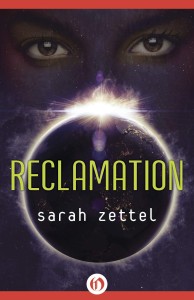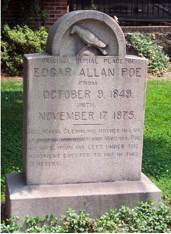 The original title of this post was 13 Reasons to Read SF by Women, and it appeared, in all it’s fearsome glory in the Huffington Post Book Blog.
The original title of this post was 13 Reasons to Read SF by Women, and it appeared, in all it’s fearsome glory in the Huffington Post Book Blog.
There’s a hazard in being a list poster, especially when you’re posting about a portion of the pop culture and literary landscape that’s been growing and changing for 200 years. There’s also the ongoing question of the necessity and utility of segregating art created by women from art created by men. But then again, this list drew some comments that made the need to keep at this a little clearer, including several where the commentors complained that SF written by men was not included on a list of SF written by women, and others who disparaged women SF authors as mostly writing romances and gothics. Speaking as a romance author…well, that’s a whole other post.
That said, here’s the article, and the original list. I think this is something I’m going to have to revisit and revise. One of the commentors suggested a list of 50, or 100. There are easily that many great works with women authors. One for this new century of ours would be great too, if only because I’d like to read the results myself.
THIRTEEN REASONS TO READ SCI-FI BY WOMEN
It was supposed to be Ten Reasons.
I tried. I really did. I just couldn’t get the list that short.
Actually, I have mixed feelings about these lists. I don’t believe there’s any good reason for sci-fi (or anything) created by women to be treated differently than sci-fi by men. If a book (or movie, or short story, or comic, whatever) is good, it’s good. If it’s not, it’s not, and the identity of the author shouldn’t matter. And if it wasn’t for the people who keep saying “I don’t read books by women,” or “women don’t write (or read), science fiction,” it might not. And do not get me started on the whole “fake geek girls” riff.
Sci-fi as we know it has been written around the world for at least two hundred years. So much of it is created by women that narrowing the list down to ten (or thirteen) titles was a challenge I was never going to be able to handle alone. So, I reached out across the internet for answers, especially into the places where I knew I’d find authors, editors, readers and geeks.
Here’s what the Internet said back. Keep in mind, this is not a complete list. This is barely the beginning.
FRANKENSTEIN, by Mary Shelley. We’re beginning at the beginning. This is widely acknowledged as the first sci-fi novel, and it’s story that has been embedded in pop culture for two hundred years.
COLD COMFORT FARM, by Stella Gibbons. Written in the 1930s, this is a hilarious send-up of English pastoral and gothic novels, and worth reading for that alone. It is also very definitely but subtly, science fiction.
NORTHWEST SMITH by C.L. Moore. This is actually an anthology. Moore was one of the most prolific writers of sci-fi’s pulp days back in the 1930 and ‘40s. If you liked Joss Whedon’s cult hit Firefly, or Speilberg’s Raiders of the Lost Ark, you’ll like Northwest Smith. “Shambleau” remains one of the world’s ickiest vampire stories.
THE WARRIOR’S APPRENTICE, by Lois McMaster Bujold. Sci-Fi adventure that skillfully blends, action, humor, and romance. If this list was arranged by number of Internet Votes, Bujold would have been duking it out with Butler, Shelley and LeGuin for top slot.
THE FEMALE MAN Joanna Russ Written during what was called the “new wave,” period of SF which rode the social changes of the 1960s and ’70, Joanna Russ was one of the most dangerous, and challenging of women sci-fi authors. This is a direct challenge to gender roles and perceptions wrapped in Russ’s smooth prose.
A THOUSAND WORDS FOR STRANGER by Julie Czerneda. Czerneda is fun. Her work has scope, excitement, brilliance and engaging characters.
THE HANDMAID’S TALE, Margaret Atwood. This book is a well-thought-out, beautifully crafted nightmare. I quote it regularly.
A WRINKLE IN TIME, by Madelaine L’Engle. I was given this book by my mother and I read it to my son. It not only holds up, it remains exciting, illuminating and scary.
HUNGER GAMES, by Suzanne Collins. Not only is this a good story, it’s a powerful reason for the renaissance happening in sci-fi right now, especially on the YA shelves.
PARABLE OF THE SOWER, by Octavia Butler. Butler was (and is) a hugely influential African American author with a brilliant writing style and an unrivalled ability to imagine the way her futures (and her pasts) shaped the lives of her characters. Sower is what I’d call a slow-dystopia novel. Civilization has collapsed, is collapsing, but it also being reimagined and rebuilt.
FULLMETAL ALCHEMIST, by Hiromu Arakawa. This isn’t a novel, it’s a manga, and an anime series (actually, several anime series plus video games). It’s also some of the best, most engaging sci-fi you’re ever going to read.
THE EMPIRE STRIKES BACK, by Leigh Brackett. Obviously not a novel. But, it is widely considered the best of the movies to date, and the brain behind much of that brilliance was the veteran female SF author and script writer.
THE LATHE OF HEAVEN, by Ursula K. LeGuin. I could have filled this list exclusively Le Guin titles. I’m going with this one, because it’s a book I give to people who think they don’t like sci-fi. It’s the story of a man whose dreams shape reality, and the psychiatrist who figures that out.
Some Honorable Mentions: Where the Late Sweet Birds Sang by Kate Wilhelm, Dreamsnake by Vonda N. McIntyre, Shattered by Robin Wasserman, Finity’s End by C.J. Cherryh, The House of the Scorpion by Nancy Farber, The Speed of Dark, by Elizabeth Moon, Her Smoke Rose Up Forever by James Tiptree, Jr. (Alice Sheldon), Grass by Sheri Tepper, Beggers in Spain by Nancy Cress, The Sparrow by Maria Doria Russell, The Doomsday Book, by Connie Willis
Enjoy.

